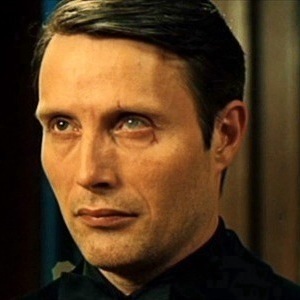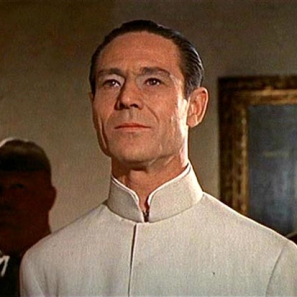I've gotten quite far in the The House of God but today I am revisiting something I read last week from early in the novel:
"I don't get it," I said. "This isn't medicine, this isn't what I signed up for. Not writing orders for cleanouts for the bowel run."
"Bowel runs are important," said Fats
"But aren't there normal medical patients?"
"These are normal medical patients."
"They can't be. Hardly any of them are young."
"Sophie's young; she's sixty-eight."
"Between the old people and the bowel rins, it's crazy. It's not at all what I expected when I walked in here this morning."
"I know. It's not what I expected either. We all expect the American Medical Dream - the whites, the cures, the works. Modern medicine's different: it's Potts being socked by Ina. Ina, who should have been allowed to die eight years ago, when she asked, in writing, in her New Masada chart. Medicine is 'bedrest until complications,' Blue Corss payments for holding hands, and all the rest you've seen today, with the odd Leo thrown in to die."
A friend of mine who is a resident told me that the majority of patients will get better no matter what you do for them. The remaining minority are the ones who depend on intervention and those are the ones that we trained to treat in medical school. These are the exciting cases. The ones that really make us feel like we accomplished something.
Sunday, August 21, 2011
Thursday, August 11, 2011
Bond Villains and Their Medical Problems
So after posting about Dr. No the other day, I realized that most Bond villains have medical problems. Naturally, Fleming and the people at EON did this to contrast the villains with the suave and fit 007. Interestingly enough, Osama bin Laden also had health problems and lived in secret lairs and many have drawn comparisons to the deceased terrorist leader and Bond villains.
Today I will be discussing the health of Le Chiffre, the villain from Casino Royale. In the novel, he seems mostly described as a very unattractive man who uses a Benzedrine inhaler (a racemic mixture of amphetamine).
In the recent Daniel Craig film, Le Chiffre (played by Mads Mikkelson) seems to have suffered an eye injury in his past and his tears contain blood. This is a condition called hemolacria, a rare disorder with different causes. One of the good lines in the film is when Le Chiffre explains his condition to a man he is playing poker with on his boat, "Weeping blood comes merely from a derangement of the tear duct, my dear General. Nothing sinister."
Just conveniently sinister-looking.
Today I will be discussing the health of Le Chiffre, the villain from Casino Royale. In the novel, he seems mostly described as a very unattractive man who uses a Benzedrine inhaler (a racemic mixture of amphetamine).
In the recent Daniel Craig film, Le Chiffre (played by Mads Mikkelson) seems to have suffered an eye injury in his past and his tears contain blood. This is a condition called hemolacria, a rare disorder with different causes. One of the good lines in the film is when Le Chiffre explains his condition to a man he is playing poker with on his boat, "Weeping blood comes merely from a derangement of the tear duct, my dear General. Nothing sinister."
Just conveniently sinister-looking.
Monday, August 8, 2011
Background on my Background
The painting for that makes up the background of this blog is The Agnew Clinic by Thomas Eakins, realist painter from Philadelphia. There is a great deal of history behind the piece. The subject of the piece is Dr. David Hayes Agnew, a fairly well known surgeon and professor at the University of Pennsylvania. Dr. Agnew was operating surgeon to President Garfield when he had been fatally shot in 1881 and is author of several texts including The Practice and Principles of Surgery.
The painting was commissioned to honor Dr. Agnew's retirement and is of great importance, itself. It was Eakins' largest work and cost $750. The painting is so realistic that every person in the painting can be identified except the patient. Eakins' decision to portray the patient as a partially nude woman in a room full of men was controversial and the piece was rejected or criticized at exhibitions.
Sunday, August 7, 2011
Julius No, M.D.
So last night I was re-watching the first James Bond film Dr. No. Afterwards, I decided to find out what he was a doctor in since it was not really mentioned in the movie. According to the novel biography, Dr. No attended a medical school in Milwaukee (Medical College of Wisconsin?). It is unclear if he finished his studies but he seems to have adopted the title of Doctor anyway (as I sort of guessed).
Whatever medical school Dr. No attended must have been digging from the bottom of the barrel. Not only was Julius No a mad scientist with a criminal history but both his hands were prosthetic. I would have liked to see him practice.
One final note. All Bond villains seem to have some sort of medical abnormality. Besides having no hands, Dr. No also has dextrocardia which means that his heart points to the right instead of his left as most people do. This is a congenital condition that arises around the third week of embryonic development.
Whatever medical school Dr. No attended must have been digging from the bottom of the barrel. Not only was Julius No a mad scientist with a criminal history but both his hands were prosthetic. I would have liked to see him practice.
One final note. All Bond villains seem to have some sort of medical abnormality. Besides having no hands, Dr. No also has dextrocardia which means that his heart points to the right instead of his left as most people do. This is a congenital condition that arises around the third week of embryonic development.
Saturday, August 6, 2011
The House of God Chronicles
So lately I've been reading Samuel Shem's The House of God, which has been more or less dubbed the Catch-22 of medicine. Samuel Shem is the pen name of Dr. Stephen Bergman, a psychiatrist who wrote The House of God in response to his internship year at Beth Israel Hospital. I heard about this book from a friend at Ohio State University College of Medicine who is currently on his rotations.
I have decided to do something different with this book. Rather than wait until I am done with it I want to chronicle my reading through the book as it happens, putting up excerpts and sharing my thoughts. I feel this makes sense because not only does it keep me writing but I also anticipate that I will have a lot to say about this novel. In fact, I probably should have done this with many of the novels I have read previously that deal with the training of a physician.
One of the things I love about the book already is the colorful colloquialisms that the narrator, Dr. Roy Basch, and his peers have. One of the first ones is Slurpers. The following except illustrates the meaning:
The House medical hierarchy was a pyramid---a lot at the bottom and one at the top. Given the mentality required to climb it, it was more like an ice-cream cone---you had to lick your way up. From constant application of tongue to the next uppermost ass, those few toward the top were all tongue. A mapping of each sensory cortex would show a homonculus with a mammoth tongue overlapping an enormous portion of brain. The nice thing about the ice-cream cone was that from the bottom, you got a clear view of the slurping going on. There they were, the Slurpers, greedy optimistic kids in an ice-cream parlor in July, tonguing and tonguing and tonguing away. It was quite a sight.
I love this. The humor is in the stark truth of it. As students we are encouraged to start "networking" early for opportunities, recommendations, etc. The term "networking" has a benign enough connotation and, truthfully, it is important. However, medicine has historically been notorious for the cut-throat competition between trainees and subordinates. The bar is constantly being raised by the more shameless but ambitious peers who progressively escalate "networking" into ass-kissing or "slurping". It becomes less about merit and more about charisma---how well you can work people. One of my top priorities as a student is learning to become good at what I am doing. It is frustrating sometimes when that does not seem to count as much as how many people I know out there. Still, I decided a long time ago to stick to my guns and hope that the people that recognize my work will be the kind of people I want to work with.
I have decided to do something different with this book. Rather than wait until I am done with it I want to chronicle my reading through the book as it happens, putting up excerpts and sharing my thoughts. I feel this makes sense because not only does it keep me writing but I also anticipate that I will have a lot to say about this novel. In fact, I probably should have done this with many of the novels I have read previously that deal with the training of a physician.
One of the things I love about the book already is the colorful colloquialisms that the narrator, Dr. Roy Basch, and his peers have. One of the first ones is Slurpers. The following except illustrates the meaning:
The House medical hierarchy was a pyramid---a lot at the bottom and one at the top. Given the mentality required to climb it, it was more like an ice-cream cone---you had to lick your way up. From constant application of tongue to the next uppermost ass, those few toward the top were all tongue. A mapping of each sensory cortex would show a homonculus with a mammoth tongue overlapping an enormous portion of brain. The nice thing about the ice-cream cone was that from the bottom, you got a clear view of the slurping going on. There they were, the Slurpers, greedy optimistic kids in an ice-cream parlor in July, tonguing and tonguing and tonguing away. It was quite a sight.
I love this. The humor is in the stark truth of it. As students we are encouraged to start "networking" early for opportunities, recommendations, etc. The term "networking" has a benign enough connotation and, truthfully, it is important. However, medicine has historically been notorious for the cut-throat competition between trainees and subordinates. The bar is constantly being raised by the more shameless but ambitious peers who progressively escalate "networking" into ass-kissing or "slurping". It becomes less about merit and more about charisma---how well you can work people. One of my top priorities as a student is learning to become good at what I am doing. It is frustrating sometimes when that does not seem to count as much as how many people I know out there. Still, I decided a long time ago to stick to my guns and hope that the people that recognize my work will be the kind of people I want to work with.
Subscribe to:
Posts (Atom)



